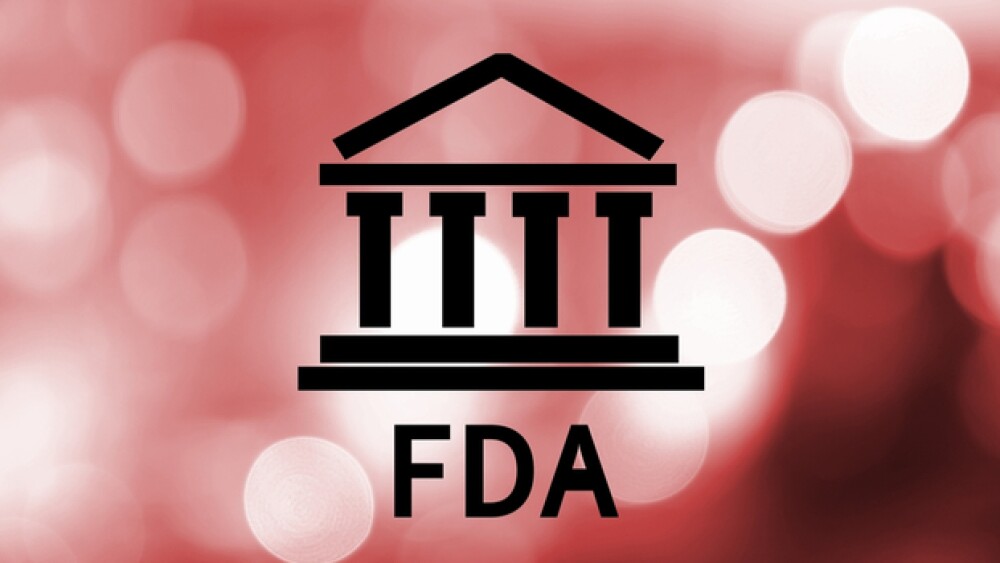The company and the agency discussed the development of SYN-004 (ribaxamase) to prevent antibiotic-mediated Clostridium difficile infection (CDI).
Shares of Rockville, Md.-based Synthetic Biologics soared as much as 23 percent at news the company has wrapped a successful End-of-Phase II meeting with the U.S. Food and Drug Administration (FDA).
The company and the agency discussed the development of SYN-004 (ribaxamase) to prevent antibiotic-mediated Clostridium difficile infection (CDI). In short, patients that receive intravenous doses of beta-lactam antibiotics have the healthy bacteria that live in their gastrointestinal tract killed off as well as the bugs being targeted. This disruption in healthy gut bacteria allows opportunistic pathogens like C. difficile (often called C. diff) to grow. Ribaxamase is designed to break down the beta-lactam antibiotics to mediate the disruption to the gut microbiome.
IV beta-lactam antibiotics include penicillin and cephalosporin antibiotics such as ceftriaxone. In the U.S., this disruption leads to 453,000 C. diff infections and more than 29,000 C. diff-related deaths each year.
The FDA had suggested a structure for a Phase III clinical efficacy and safety trial for the drug, which if successful, would support submission for approval on the basis of a single Phase III trial. The company will need to submit a detailed trial protocol for the FDA to approve, but investors clearly saw it as promising.
“We are very pleased with the productive advice we have received from the FDA during our recent End-of-Phase II meeting,” stated Steven A. Shallcross, interim chief executive officer and chief financial officer, of Synthetic Biologics. “Having a clear path forward in the form of a Phase III clinical program for ribaxamase is an exciting and important milestone for our company and should be highly beneficial in our ongoing strategic partnering discussions.”
Ribaxamase is a first-in-class oral enzyme prophylactic drug that degrades specific IV beta-lactam antibiotics in the gastrointestinal tract. This maintains the natural balance of the microbiome in the gut to prevent C. diff infection, overgrowth of pathogens and the emergence of antimicrobial resistance.
A Phase IIb clinical trial of 412 patients met its primary endpoint of significantly decreasing CDI. Early analysis of the trial data indicated seven confirmed cases of CDI in the placebo group compared to two cases in the group receiving ribaxamase. Patients who received the drug had a 71.4 percent relative risk reduction in CDI rates compared to those in the placebo group.
In the discussions with the FDA, they identified the key elements of a proposed Phase III trial. It would involve a single, global, event-driven trial with a fixed maximum number of patients. It would enroll patients with a range of underlying infections treated with a variety of IV beta-lactam antibiotics.
Synthetic Biologics indicates it expects to start the Phase III program once it secures more financing from a strategic partnership. It is also evaluating opportunities to develop the drug for a more focused clinical indication in transplant patients.
At the company’s recent third-quarter financial report, Shallcross stated, “During the third quarter we also held an End of Phase II meeting with the FDA to define a clear and achievable pathway forward for SYN-004, our first-in-class therapeutic intervention designed to protect the gut microbiome from antibiotic-mediated dysbiosis. We also announced that we are evaluating opportunities that may further unlock the potential of SYN-004 through the pursuit of a second more focused indication in a specialty patient population with multiple potential disease endpoints associated with IV beta-lactam-induced gut microbiome damage, such as allogeneic hematopoietic cell transplant (HCT) recipients.”
He added, “This dual approach may enable us to continue the clinical advancement of SYN-004 in a cost-effective manner while targeting an area of clear unmet need and expanding upon the established data set to further validate SYN-004’s use in the broader indication for the prevention of CDI.”





